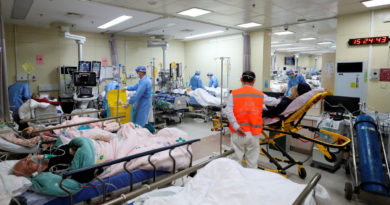HEADLINE | MANILA- Department of Justice (DOJ) chief reiterates: International Criminal Court-ICC ‘not welcome here’
The Appeals Chamber of the International Criminal Court in The Hague will rule today on the Philippine government’s appeal for the prosecutor not to proceed with the investigation into alleged crimes against humanity committed in the war on drugs under former president Rodrigo Duterte and ex-PNP chief Ronald dela Rosa. Justice Secretary Jesus Crispin Remulla has made it clear authorities would not cooperate with ICC prosecutors.
Court rules today on Philippines appeal vs drug war probe
.
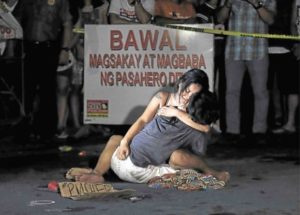
MANILA, Philippines — While the government’s litigation team expects the International Criminal Court to decide today to send prosecutors to investigate alleged abuses in the conduct of the Duterte administration’s war on drugs, the Department of Justice (DOJ) is determined to stop the ICC from gathering evidence on Philippine soil.
“They are to do nothing of the sort here. They have no relevance here. What will they do, invade us like we’re just some colony again? That’s over. Enough is enough. We’re a free country with its justice system,” Justice Secretary Jesus Crispin Remulla told reporters yesterday ahead of the ICC Appeals Chamber’s verdict.
The Office of the Solicitor General (OSG) is appealing an ICC decision to allow its prosecutors to investigate the drug-related killings committed by authorities during Duterte’s presidency and when he was mayor of Davao City.
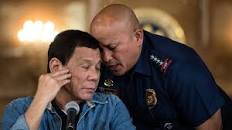
In a statement issued on July 16, Solicitor General Menardo Guevarra said that if the government’s appeal is denied, ICC prosecutor Karim Khan – who is handling the case for the international tribunal – and his team would have the authority to resume their
investigation.
“There is no further appeal available to the Philippine government. Depending on the evidence he may be able to gather, the ICC prosecutor may seek the issuance of summonses or warrants of arrest against certain individuals. These persons who may be indicted will have to engage their own defense counsel,” Guevarra said. The OSG only represents the state.

An ICC pre-trial chamber earlier approved an inquiry into the alleged extrajudicial killings of suspected drug offenders, saying the killings appear to constitute crimes against humanity.
The pre-trial chamber also maintained that cases that may arise from the probe appear to fall within the court’s jurisdiction.
However, the probe was suspended in November 2021 upon the request of the Duterte administration.
In September last year, ICC prosecutors led by Khan prodded the pre-trial chamber of PTC to order the resumption of its drug war probe, citing several areas where the Marcos administration had fallen short in justifying a deferral.
The OSG then submitted last Sept. 8 its response to the PTC’s request for comment on why the investigation should not be resumed, which hinges on three arguments: the ICC’s lack of jurisdiction over the Philippines, the drug war’s inadmissibility on account of the Rome Statute’s Article 17 and the complementarity principle in international law.
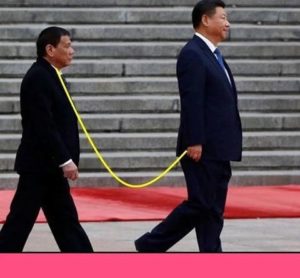
Capability doubted
Locking horns with the government’s top litigators, the ICC prosecutors said these arguments were not backed by strong evidence that could convince the ICC of the Philippines’ capability to resolve the cases of alleged abuses on its own.
For one, Khan wrote that the government and its investigating agencies failed to demonstrate in its Sept. 8 submission any “past or ongoing national proceedings that could match” the quality of investigation being readied by the ICC.
Aside from the Philippine National Police, the Administrative Order 35 task force – an inter-agency committee chaired by the justice secretary – is tackling unsolved cases of political violence, whether through EJKs, enforced disappearances, torture or other human rights violations.
In its submission to the PTC, the Marcos administration – represented by the OSG – maintained the absence of the ICC’s jurisdiction over the Philippines and that the drug war killings from July 2016 to March 2019, as well as in the Davao region between 2011 and 2016 when Duterte was mayor of Davao City, do not constitute “crimes against humanity.”
In 2018, then-president Duterte withdrew the Philippines from the Rome Statute, the treaty that formed the ICC, after the ICC announced that it would conduct a preliminary examination on his drug crackdown. President Marcos earlier decided to stay out of the ICC.
After Khan made a petition to resume the ICC probe last year, the Marcos administration opted to sit out the counterarguments of the ICC prosecutors against the Philippines’ attempt to stop the investigation on the drug war killings, claiming there was already nothing the government could do to change Khan’s mind about launching an investigation.
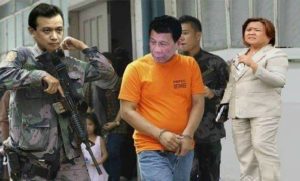
Guevarra said whether the government loses or wins its appeal, Philippine authorities would continue focusing on their own investigation and prosecution of the killings.
“(The Philippine government) will defend and assert the sovereignty of the republic at all times,” he added.
For his part, Remulla made it clear authorities would not cooperate with ICC prosecutors, who would be requiring government documents and interviews to gather enough evidence to prosecute Duterte administration officials.
“They are not welcome in the Philippines,” Remulla reiterated. “We will not allow their investigation because we have our own justice system, traditions, police, prosecution and courts. They cannot encroach or trample on our authority.”
The DOJ secretary added that the ICC should instead turn its focus on nations embroiled in chaos and lawlessness.
“The ICC should be functioning instead in countries that have no justice system or those embroiled in conflict like Sudan as of now… nations where no law governs the people. That’s where you’re needed, not in countries with stable systems like the Philippines,” he added.
Duterte’s controversial crackdown on drugs has resulted in the arrest of over 300,000 drug suspects since June 2016. Latest government data show 6,235 drug suspects killed in reported shootouts with police. But activists and human rights groups believe thousands more may have been killed execution-style by security forces and vigilantes.
.
 Memento Maxima Digital Marketing
Memento Maxima Digital Marketing
@[email protected]
SPACE RESERVE FOR ADVERTISTMENT

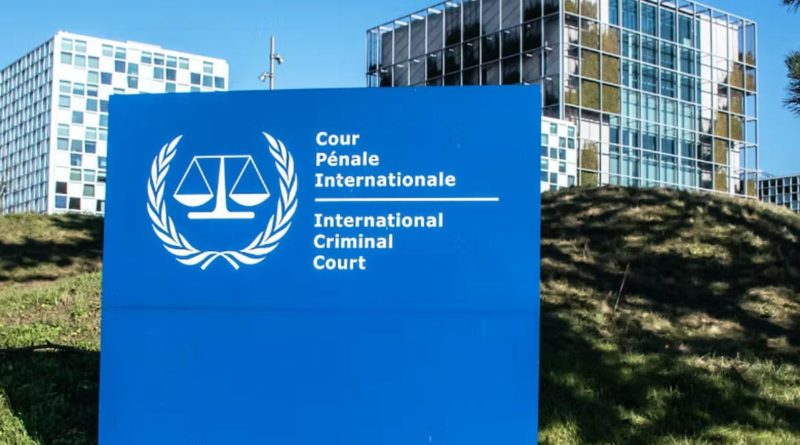
 Memento Maxima Digital Marketing
Memento Maxima Digital Marketing




